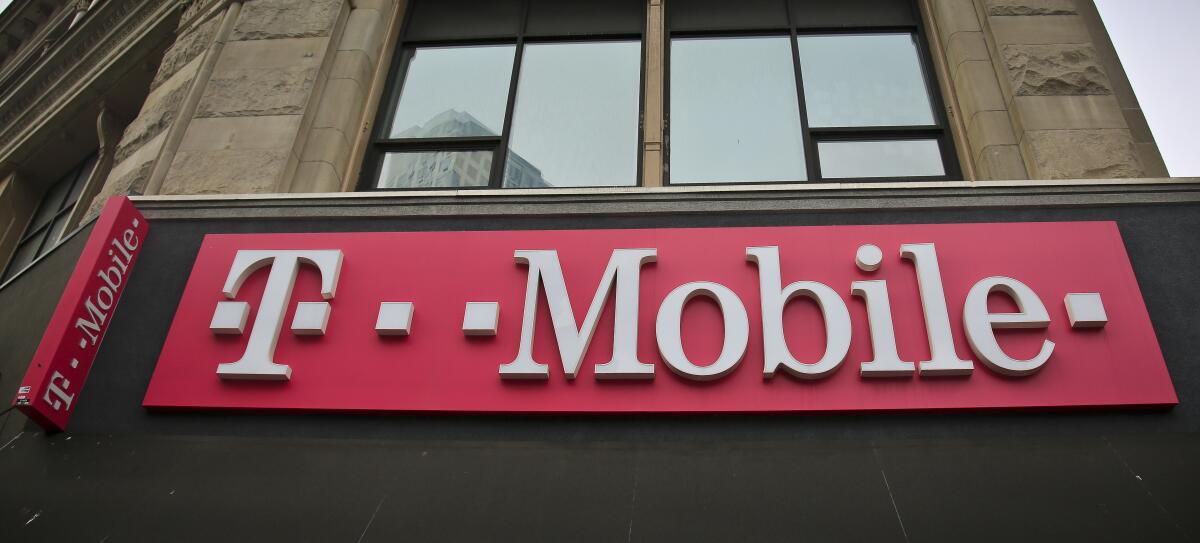California attorney general drops challenge to T-Mobile-Sprint merger

NEW YORK — California’s attorney general said Wednesday that the state will not appeal a judge’s decision approving T-Mobile’s $26.5-billion purchase of Sprint, bringing the companies closer to creating a new wireless giant on par with AT&T and Verizon in size.
Atty. Gen. Xavier Becerra, along with New York Atty. Gen. Letitia James, led a coalition of 14 state attorneys general who sued to stop the deal. They had argued that combining two major wireless companies would harm consumers by reducing competition and adding billions of dollars to phone bills.
T-Mobile and Sprint said the deal would benefit consumers by helping the companies build a better next-generation, 5G wireless network than each could do alone. The companies also said the deal would lead to lower prices, as combining would help them better compete with AT&T and Verizon.
A federal judge in New York sided with the companies in February. New York decided a few days later not to appeal.
Becerra said Wednesday that T-Mobile would reimburse the remaining 12 states and the District of Columbia as much as $15 million combined for the costs of investigating and litigating the antitrust case. He did not say how much the states spent.
In the settlement, T-Mobile also agreed to provide price and job protections in California beyond the deals struck with federal regulators. (The company has made such agreements in individual settlements with such states as Colorado and Texas, both of which left the state coalition before the trial began.) For example, it will freeze prices for five years for Californians — up from the three-year freeze it’s offering at the national level.
The California settlement also requires T-Mobile to do what the company already said it would in a November announcement: offer free internet service and Wi-Fi hot spots to 10 million low-income households with children nationwide. The internet offer is capped at 100 gigabytes for the year, or about 8 gigabytes a month. That won’t last long for a family that streams video.
The Justice Department and the Federal Communications Commission approved the merger last year. As part of its deal with the federal government, T-Mobile and Sprint agreed to set up satellite TV company Dish as a new cellular competitor, though it will be a much smaller one. The states had argued that Dish was not an adequate replacement for Sprint in the wireless market.
A federal judge in Washington, D.C., has yet to approve the Justice Department settlement. California’s Public Utilities Commission also plans to rule on the deal by April 16. T-Mobile has said that it expects to close the deal as early as April 1.
T-Mobile did not immediately respond to a request for comment Wednesday.
More to Read
Inside the business of entertainment
The Wide Shot brings you news, analysis and insights on everything from streaming wars to production — and what it all means for the future.
You may occasionally receive promotional content from the Los Angeles Times.










